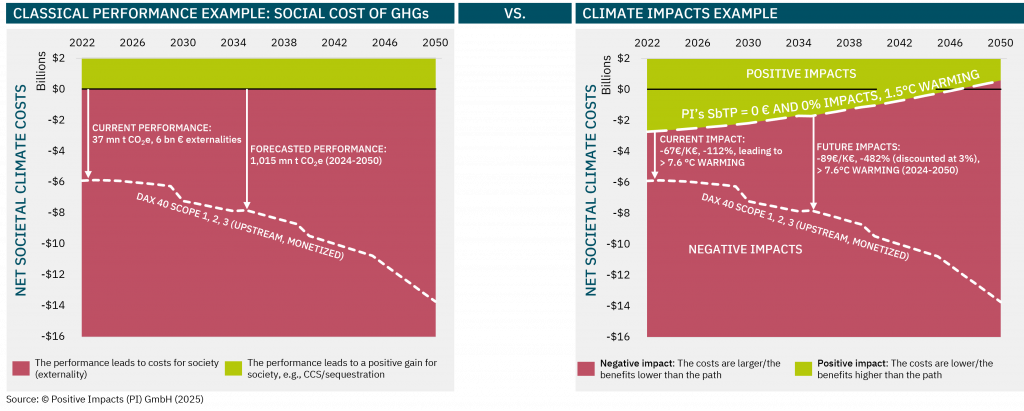Methodology
impacts
Our frameworks are based on years of research. Find out about our methodologies below.
about impacts what sets us apart
Our frameworks are based on years of research. Find out about our methodologies below.
about impacts what sets us apart
An impact is the actual or potential change on the environment, people, and the economy.
We in addition summarize the (historical) financial effects and (future) risks and opportunities driven by your impacts as Value & Risks. Together they are also coined as Impacts, Risks & Opportunities (IROs).
Sustainability is always about two dimensions, impacts on society and how these have an effect on financials. Our Impacts Accounting Framework clearly focuses on impacts on society. We connect these to financial effects, risks and opportunities in our Value & Risk section and provide guides for identifying the right strategy in our Strategy section.
Actions can lead to both less negative or more positive impacts.
Plain performance indicators can only explain the principle direction of the actual or potential total future changes in the environment, on people, and the economy. However, they cannot determine if an impact is positive or negative. They can consist of, in principle, undesired, e.g., GHG emissions, and desired changes, e.g., afforestation. The graph on the left shows an example of the forecasted GHG emissions of the DAX40 and their translation into climate impacts (graph on the right):

The PI Impact Accounting Framework
Various initiatives knowingly or unknowingly impact wash overviews of impacts, “Integrated Profit/Loss” statements, integrated capital accounting, or the like by mixing private gains with public impacts.
Possible motives for promoting such approaches are:
Several other platforms, initiatives, and organizations may simply not know exactly what they do.

Impacts go beyond direct operations. Our tool lets you assess:
This flexibility ensures assessments are aligned with your sustainability strategy — whether focused narrowly on operations or across the full value chain.


The PI Science-based Targets Path® provides a holistic view of organizational impacts, covering six key sustainability topics: climate change, water, biodiversity (nature), health, social matters, and net tax. Together, these are measured through 14 science-based indicators such as CO₂e.
Data integrity is essential. Our verification process ensures your impact assessment is as complete and reliable as possible:
Our tool uses AI-powered modeling to close data gaps and ensure completeness. By leveraging your CRM data, revenue, spend, and industry benchmarks, we deliver a reliable, comprehensive assessment — even when some inputs are missing.
This capability makes our framework uniquely powerful, offering a level of analysis and coverage rarely matched in the market.